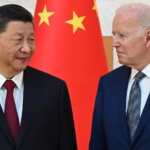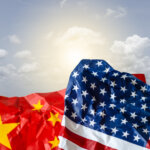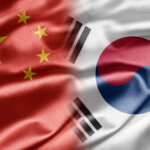US-China trade war: New executive order, same old mistakes?
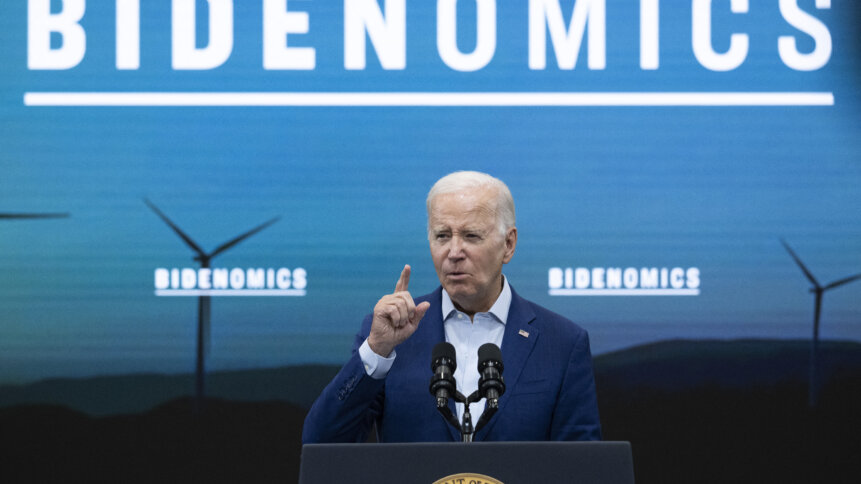
- The US President is escalating the tech trade war with China with a new executive order that’ll come into effect next year.
- The order declares a national emergency, directing the Treasury Department to establish a program to oversee a new instrument to review outbound investments in national critical sectors.
- The President continues to treat China as an active danger, and penalize it as such.
The United States is still dealing with the unintended consequences of the first export controls imposed against China last October. It was the most far-reaching action taken by the Biden Administration, eventually leading to the escalation of the US-China trade war – so much so that China has not shied away from responding to the US measures that have followed.
The US and China briefly turned down the heat on their relationship when Treasury Secretary Janet Yellen and Secretary of State Antony Blinken visited Beijing recently, partly to improve communication between the two countries. “President Biden and I do not see the relationship between the US and China through the frame of great-power conflict,” Yellen said at the end of her trip.
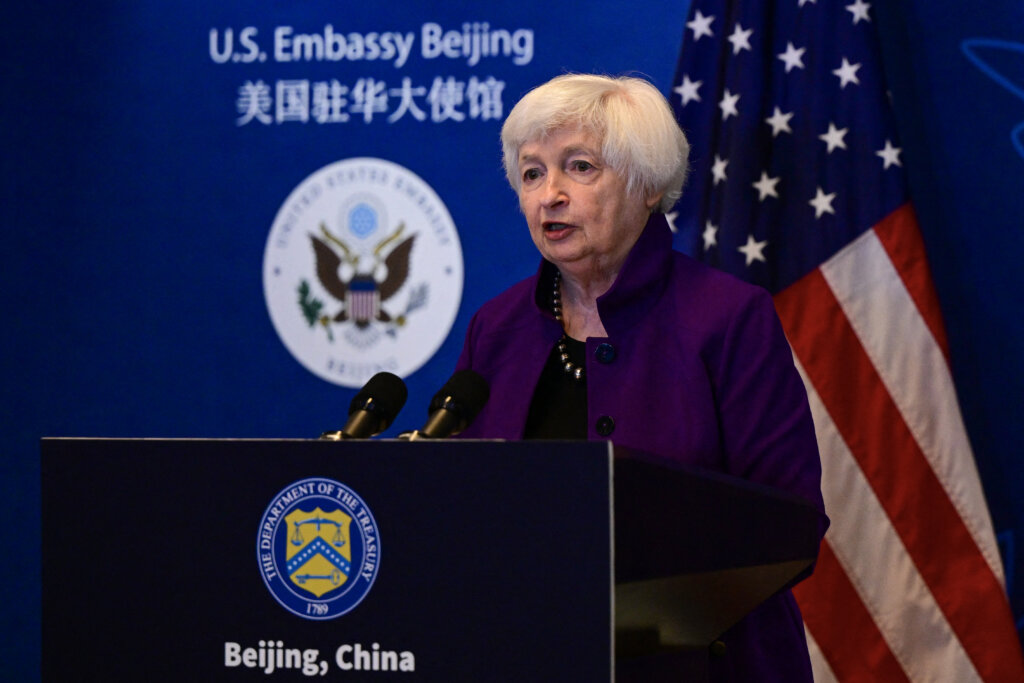
US Treasury Secretary Janet Yellen speaks during a press conference at the Beijing American Center of the US Embassy in Beijing on July 9, 2023. (Photo by Pedro PARDO / AFP)
Unfortunately, the reality is far from the harmony the official meetings were trying to paint: the US and China are still engaged in a great-power struggle, actively competing for global supremacy. This week, the US intensified its trade war with China by announcing a new investment screening mechanism. This time, however, China isn’t the sole target. Its special administrative regions, such as Hong Kong and Macau, were included too.
The three countries were noted as the only points of concern in what Biden dubbed the ’emergency declaration.’ For context, the President declared the latest move as “a national emergency to deal with the threat of advancement by countries of concern in sensitive technologies and products critical to the military, intelligence, surveillance, or cyber-enabled capabilities of such countries.”
All about the latest executive order in the US-China trade war
On August 9, this week, Biden signed an executive order to narrowly prohibit certain US investments in sensitive technology in China and require government notification of funding in other tech sectors. Ironically, the announcement came on the first anniversary of Biden signing the Chips and Science Act into law.
But the order didn’t come as a surprise – it was long-anticipated. This time, it is intended to curb US venture capital and private equity investments in Chinese companies covering semiconductors and microelectronics, quantum information technologies, and specific artificial intelligence (AI) systems.
In a letter to Congress, Biden declared a national emergency to deal with the threat of advancement by countries like China “in sensitive technologies and products critical to the military, intelligence, surveillance, or cyber-enabled capabilities.” Therefore, the order also called for the creation of an outbound investment review mechanism.
The move is being made mainly because the export controls unveiled last October by the US “don’t include investments abroad that can help foreign adversaries or countries of concern to fuel indigenous development of national security technologies,” an administration official said, according to the South China Morning Post.
“By adding outbound investment screening to our suite of national security tools, we’re enhancing US capabilities to safeguard our national security,” the official added. However, unlike most past orders or bans, the latest move also seeks to blunt China’s ability to use US investments in its technology companies to upgrade its military, while preserving broader levels of trade that are vital for both nations’ economies.
The US is being cautious this time
This time, administration officials, including Commerce Secretary Gina Raimondo and Treasury Secretary Janet Yellen, have said the US seeks to keep the scope of the new investment restrictions as narrow as possible to limit the damage to the bilateral relationship. The US wants to avoid worsening the trade war with China.
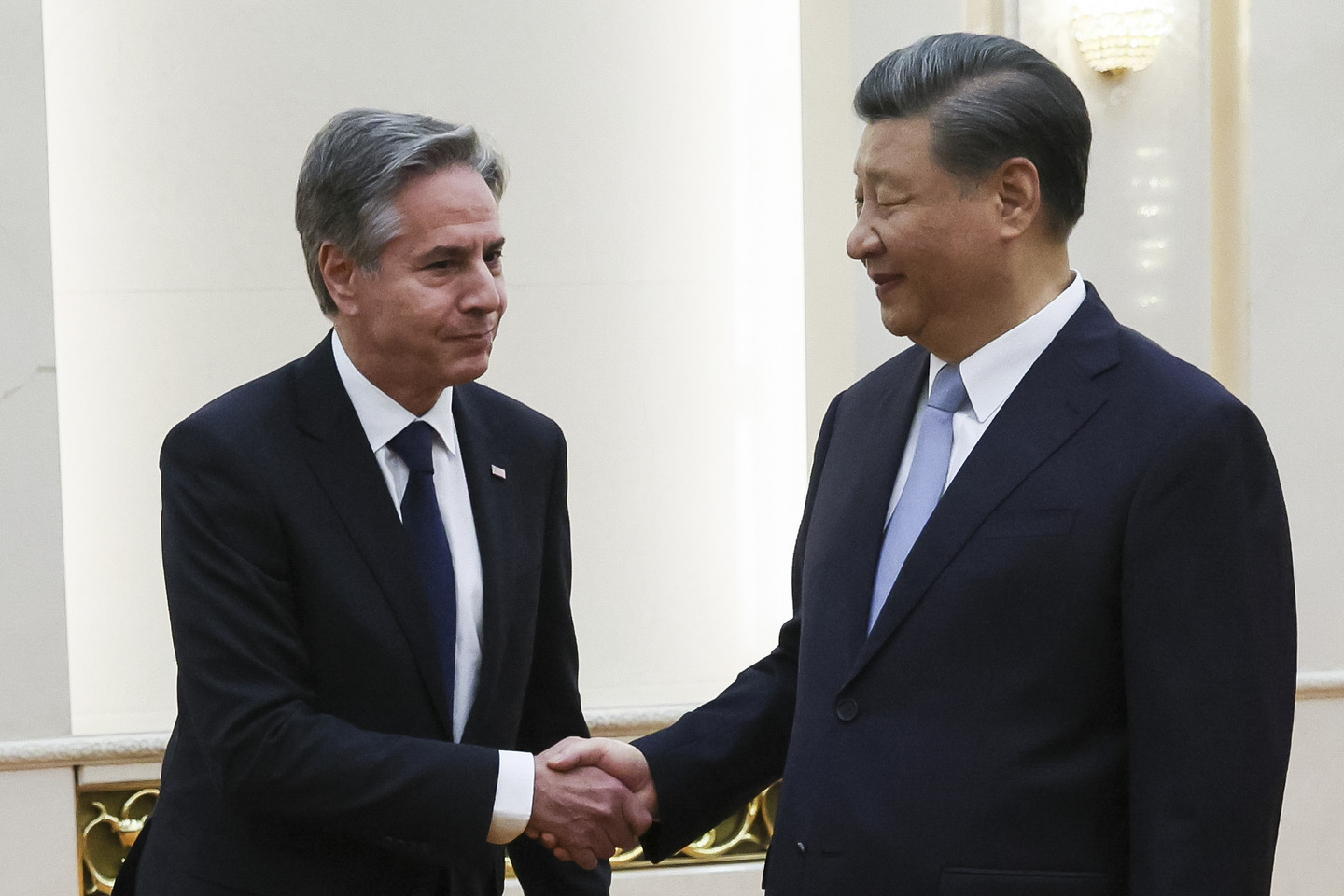
Secretary of State Blinken sought to de-escalate the US China trade war on his rcent visit. Source: Leah Millis/Pool/AFP.
“You don’t want the cutline to be so broad that you deny American companies revenue and China can get the products elsewhere, or China gets products from other countries, so what we’re trying to do is be narrowly defined [and] work with our allies on these choke point technologies,” Raimondo said last month.
Unfortunately, China did not perceive the move as positively as the US did.
Following the announcement, a spokesperson for the Chinese embassy in Washington said that China is “very disappointed” by the move. In a statement, Liu Pengyu said the curbs would “seriously undermine the interests of Chinese and American companies and investors” and added: “China will closely follow the situation and firmly safeguard our rights and interests.”
Meanwhile, China’s commerce ministry in Beijing accused the US of disrupting global industry and supply chains. The executive order “seriously deviates from the market economy and fair competition principles the US has always promoted, and affects companies’ normal operation decisions,” a spokesperson said.
The order is expected to be implemented next year, according to someone who was briefed on the issue, after multiple rounds of public comment, including an initial 45-day comment period. Emily Benson of the Center for Strategic and International Studies (CSIS), a bipartisan policy research organization, said the move by the US signals a seismic broadening of the US trade, investment, and technology toolkit that reflects a gap in existing government authorities.
“This begs an obvious question about why the US lacks authority to review outbound investments in countries of concern for certain end uses that pose national security threats,” she noted. In other words, Benson believes there is a conspicuous missing piece in the ability of the US government to ensure that US capital—both funding and know-how—is not used to advance foreign military capabilities.
“The August 9 executive order thus stands up the scaffolding for a system to close this gap,” she summarized. The takeaway, for now, is that the latest order creates an opportunity for the administration to articulate even more clearly to skeptics that these investments pose a national security risk, thus meriting a new review regime.
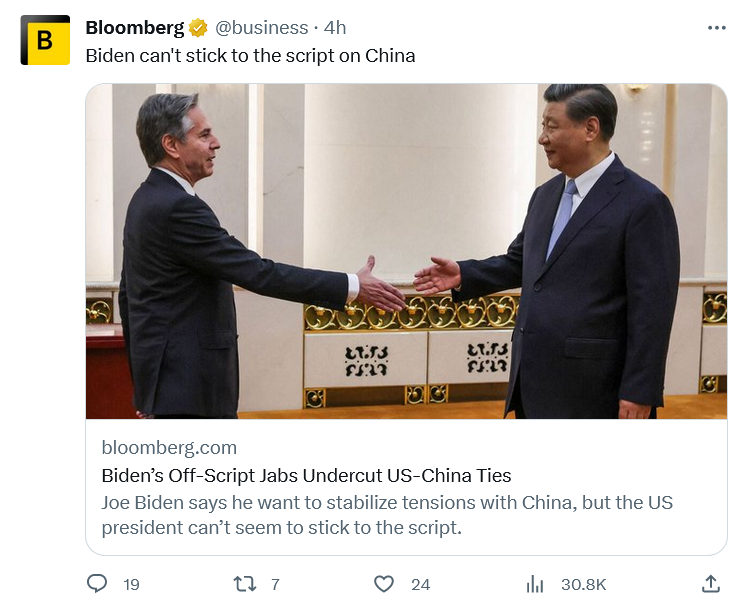
If there’s a script for non-confrontation with China, can President Biden stick to it?
This considers the hard lessons the US government has learned after the October 7 export controls, including that allies and companies need to be more adequately briefed on the underlying national security justifications for the controls.






